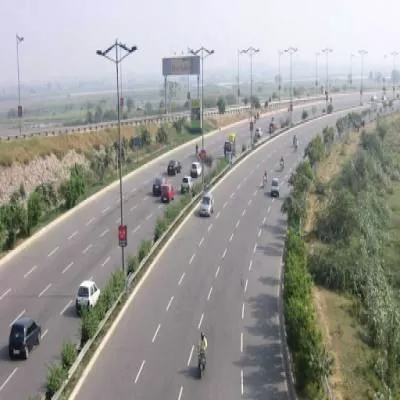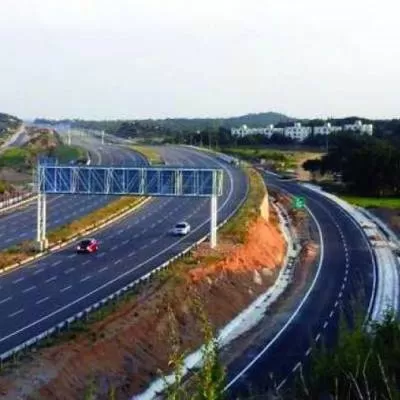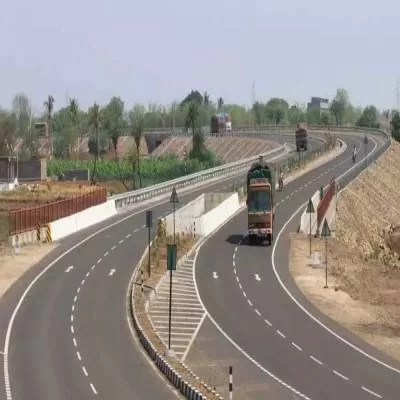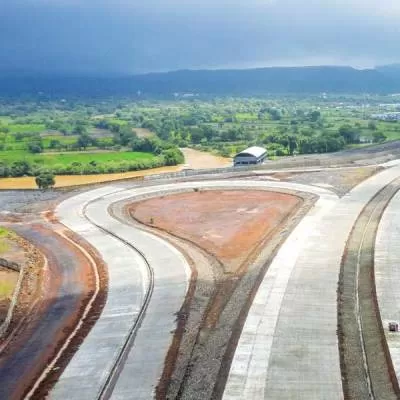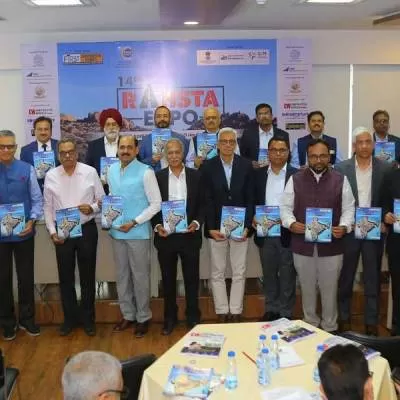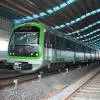- Home
- Infrastructure Transport
- ROADS & HIGHWAYS
- Metro - The Future of Urban Transport

Metro - The Future of Urban Transport
When it comes to mass rapid transport, metro systems will wheel India into the 21st century. With its first metro network in Kolkata in the 1980s followed by Delhi in the last decade, post-independence India took a while in warming up to the metro. The success of Delhi metro spurred urban planners to take up the idea with gusto. A similar success story has been witnessed in Mumbai Metro where 100 million commuters have travelled within 400 days, making it the eighth densest metro corridor in the world.
Metros everywhere
At present, six metro networks in the mega-cities of Delhi, Mumbai, Kolkata, Chennai, Bengaluru and Jaipur are operational with plans to further expand each of these. Metro projects are also in various stages of planning and execution in 31 other cities. That´s besides the monorail, one of which is already operational in Mumbai. No country has laid out metro and other similar networks at such a breathtaking pace. The London Underground, the world´s first metro, is over a century old but the entire Great Britain still has only 20-odd urban rail systems. Even China, which has witnessed the fastest pace of urbanisation in history, has just 20-odd metro networks.
The challenges
Obviously, the scale and speed of the rollout brings its share of challenges. As we´ve taken up the projects in densely populated metropolises, especially the jam-packed older or walled city areas to ease up traffic congestions, unencumbered right of way will be a constant challenge. The inevitable delays are expected to result in cost escalation and financial stress.
Given how quickly the country evolved a forward-looking policy around MRTS, lack of preparedness was perhaps inevitable. Clarity has now emerged regarding the legal framework to be adopted for the implementation of metro projects with a clear preference for the Metro Act 2002 over the Tramways Act. Some projects were initially sought to be executed under the Tramways Act, but it was soon realised that Metro Act 2002 alone covers safety and security aspects with legal provisions required to regulate a modern MRTS that entails many legal intricacies.
While Metro Act 2002 is now the agreed-upon overarching legal umbrella for MRTS, the policy framework on how the networks would be built, maintained or run, is still hazy. For instance, policy planners have yet to take a clear call whether the limited public finances are best devoted to welfare programmes or for capital-intensive MRTS projects.
Promoted by the Centre, PPP under build-operate-transfer (BOT) or build-own-operate-transfer (BOOT) regimes was the preferred mode for metro. Later, government undertakings wholly owned by states were seen as a better option to roll out and operate the new networks. Whether they can do so without undue financial stress on states´ finances remains to be seen.
Moving ahead
The need of the hour is to formulate a clear policy for the implementation of metro projects; whether they should be done through the PPP, EPC or hybrid route. While there have been teething troubles under the PPP model, it can still act as the engine of growth of the metro sector along with the EPC model, provided we take into account the lessons learnt and concerns expressed by the private partners. Besides developing the projects, capacity building in the entire metro sector will be equally challenging.
Our governments must have a very clear view on these policy decisions if they want to provide Indian cities with world-class mass rapid transit systems. Setting up an empowered and independent regulator for metro networks on the lines of those for telecom or electricity would be a good start.
About the Author:
Abhay Kumar Mishra is CEO, Mumbai Metro One Pvt Ltd (MMOPL), which runs Mumbai Metro One. The views expressed are personal.
Abhay Kumar Mishra examines India´s urban rejuvenation dreams that are reflected in the ambitious urban metro plans and expectations for the coming year. When it comes to mass rapid transport, metro systems will wheel India into the 21st century. With its first metro network in Kolkata in the 1980s followed by Delhi in the last decade, post-independence India took a while in warming up to the metro. The success of Delhi metro spurred urban planners to take up the idea with gusto. A similar success story has been witnessed in Mumbai Metro where 100 million commuters have travelled within 400 days, making it the eighth densest metro corridor in the world. Metros everywhere At present, six metro networks in the mega-cities of Delhi, Mumbai, Kolkata, Chennai, Bengaluru and Jaipur are operational with plans to further expand each of these. Metro projects are also in various stages of planning and execution in 31 other cities. That´s besides the monorail, one of which is already operational in Mumbai. No country has laid out metro and other similar networks at such a breathtaking pace. The London Underground, the world´s first metro, is over a century old but the entire Great Britain still has only 20-odd urban rail systems. Even China, which has witnessed the fastest pace of urbanisation in history, has just 20-odd metro networks. The challenges Obviously, the scale and speed of the rollout brings its share of challenges. As we´ve taken up the projects in densely populated metropolises, especially the jam-packed older or walled city areas to ease up traffic congestions, unencumbered right of way will be a constant challenge. The inevitable delays are expected to result in cost escalation and financial stress. Given how quickly the country evolved a forward-looking policy around MRTS, lack of preparedness was perhaps inevitable. Clarity has now emerged regarding the legal framework to be adopted for the implementation of metro projects with a clear preference for the Metro Act 2002 over the Tramways Act. Some projects were initially sought to be executed under the Tramways Act, but it was soon realised that Metro Act 2002 alone covers safety and security aspects with legal provisions required to regulate a modern MRTS that entails many legal intricacies. While Metro Act 2002 is now the agreed-upon overarching legal umbrella for MRTS, the policy framework on how the networks would be built, maintained or run, is still hazy. For instance, policy planners have yet to take a clear call whether the limited public finances are best devoted to welfare programmes or for capital-intensive MRTS projects. Promoted by the Centre, PPP under build-operate-transfer (BOT) or build-own-operate-transfer (BOOT) regimes was the preferred mode for metro. Later, government undertakings wholly owned by states were seen as a better option to roll out and operate the new networks. Whether they can do so without undue financial stress on states´ finances remains to be seen. Moving ahead The need of the hour is to formulate a clear policy for the implementation of metro projects; whether they should be done through the PPP, EPC or hybrid route. While there have been teething troubles under the PPP model, it can still act as the engine of growth of the metro sector along with the EPC model, provided we take into account the lessons learnt and concerns expressed by the private partners. Besides developing the projects, capacity building in the entire metro sector will be equally challenging. Our governments must have a very clear view on these policy decisions if they want to provide Indian cities with world-class mass rapid transit systems. Setting up an empowered and independent regulator for metro networks on the lines of those for telecom or electricity would be a good start. About the Author: Abhay Kumar Mishra is CEO, Mumbai Metro One Pvt Ltd (MMOPL), which runs Mumbai Metro One. The views expressed are personal.


